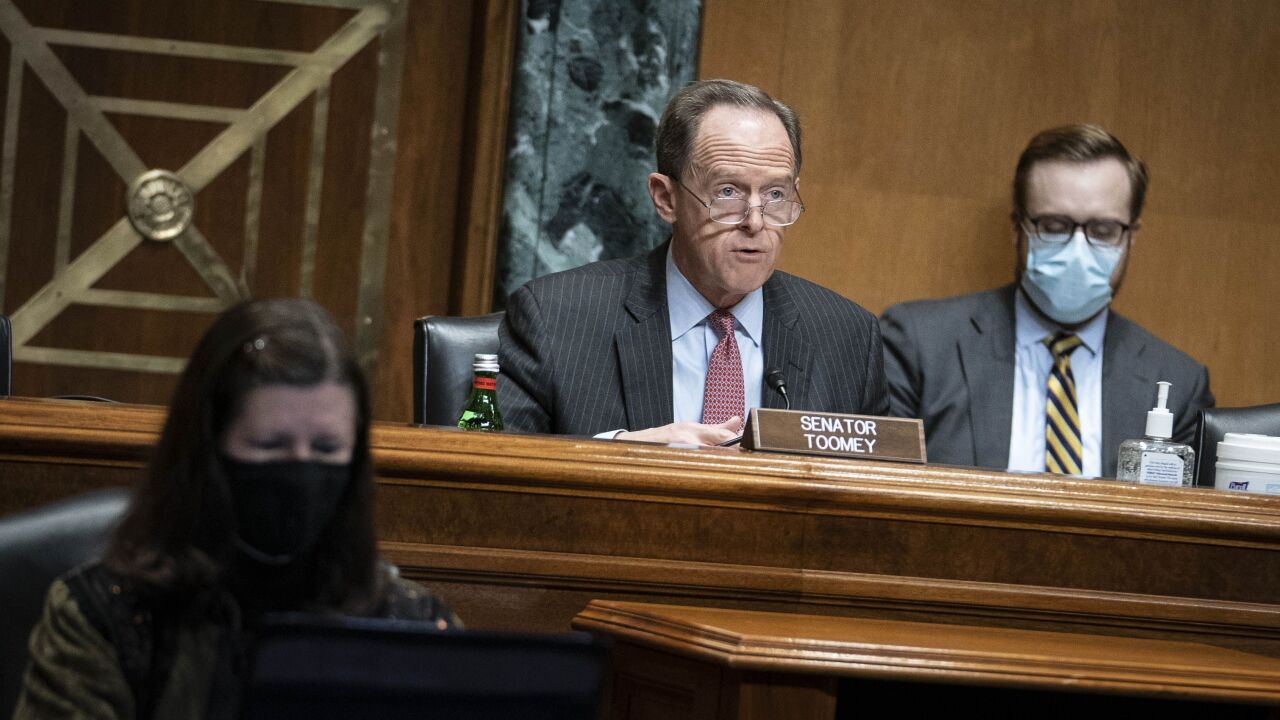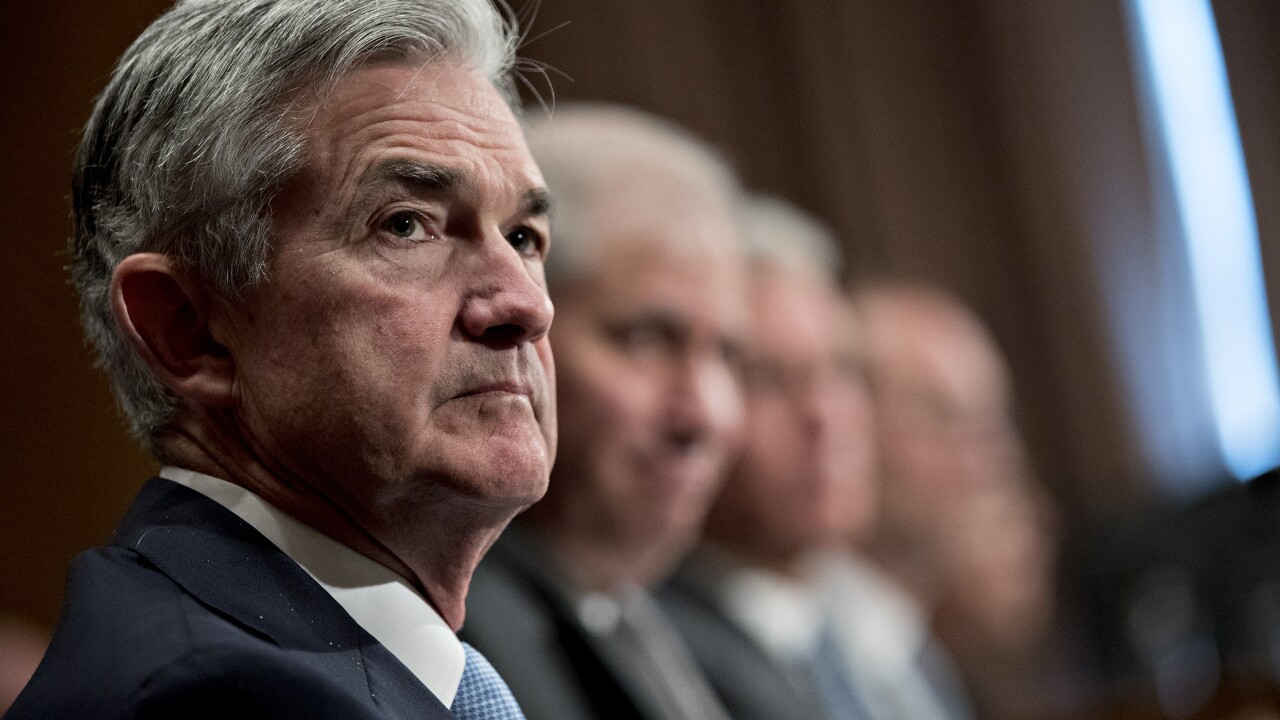Federal Reserve
Federal Reserve
-
Federal Reserve Gov. Lael Brainard said regulators are seeking to "understand the potential benefits and risks" from utilizing artificial intelligence in the financial services sector.
January 12 -
Public agencies led by the Federal Reserve often stretch the definition of “necessary and proper” to the breaking point when seeking to fulfill public mandates, columnist Chris Whalen argues.
January 5 -
The Federal Reserve is credited with containing damage to the financial system from the coronavirus pandemic, but experts say the limits of the central bank’s power to prop up the economy will likely become more apparent in the new year.
December 28 -
The Federal Reserve has already agreed to shut down emergency credit programs funded by the Coronavirus Aid, Relief and Economic Security Act, but Sen. Pat Toomey, R-Pa., and others want Congress to ensure the central bank cannot revive them.
December 17 -
There are people creating a lot of unrealistic scenarios about market risk.
December 14 -
Set alight by the Fed’s low interest rates and bond purchases, the mortgage industry is on fire.
December 4 -
Tuesday's hearing on the CARES Act was dominated by bickering over Treasury's decision to shut down the Fed's emergency lending facilities, drowning out pleas from some lawmakers for more aid.
December 1 - LIBOR
The OCC, Federal Reserve and FDIC said that a failure to adequately prepare for the transition away from Libor could undermine banks' safety and soundness, but also extended the sunset date for many iterations of the interest rate benchmark to July 2023.
November 30 -
Mortgage rates remained unchanged at their record lows heading into the Thanksgiving holiday, as investors reacted to a growing resurgence in coronavirus cases.
November 25 -
The Trump administration has compelled the Federal Reserve to shut down the Main Street Lending Program and other facilities that aid banks’ pandemic relief efforts, but President-elect Biden’s Treasury nominee could help turn the spigot back on.
November 24 -
U.S. government debt just logged its best week since August after the Treasury demanded the Fed return unused funds from emergency lending programs, a request the central bank said late Friday it would comply with. The development bolstered Wall Street predictions that the Fed will unveil more monetary action when it meets in mid-December.
November 22 -
Treasury Secretary Steven Mnuchin called on the Federal Reserve Thursday to let several of its emergency lending facilities expire at yearend and return unused funds provided by Congress. But the central bank wants the programs to continue.
November 19 -
The Term Asset-Backed Securities Loan Facility was brought back to inject $100 billion into the pandemic-battered economy, but only a fraction has been disbursed. Yet experts, pointing to its calming effects on markets, recommend that it be extended into next year.
November 17 -
Opening a bank or investment account — or even securing employment in a racism-free workplace — is out of reach for many Black Americans.
November 9 -
With a Democrat set to take the White House in January, the agenda for agencies like the CFPB could undergo a rapid transformation, housing finance reform could be turned on its head and progressive banking ideas that were unthinkable over the past four years could gain traction.
November 7 - LIBOR
The statement comes after multiple small and midsize institutions earlier this year warned the agencies that the secured overnight financing rate was ill-suited to them.
November 6 -
How we resolve millions of delinquent mortgages due to COVID is the only question that matters.
October 30 -
The proposed regulation would codify a 2018 pronouncement by regulators that guidance does not carry the force of law.
October 29 -
The Buffalo, N.Y., bank will pay a $546,000 penalty, which will be passed on to the National Flood Insurance Program to help offset costs.
October 15 -
Control of the U.S. Senate hangs in the balance in the upcoming election, with the outcome determining the direction of laws and regulations that can have a profound impact on financial services, technology, fintech and payments innovation.
October 2



















